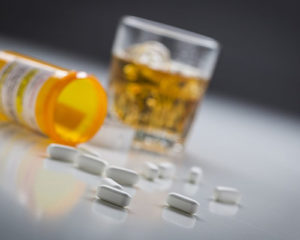The city of Elizabeth, New Jersey’s fourth-largest, is located in the northeastern part of the state in Union County. It was founded in the mid-1600s and was initially named for Elizabeth, the wife of Sir George Carteret, Baronet, and not England’s Queen Elizabeth, as some have said.
Today, Elizabeth is home to several industrial and manufacturing companies and serves as a major transportation hub located roughly about 12 miles from bustling New York City. Port Newark/Elizabeth is one of the world’s busiest ports, and parts of Newark International Airport are located in the city.
Along with crime, unemployment, and poverty, Elizabeth is also battling substance abuse and addiction. Much of New Jersey wrestles with the opioid public health emergency that has affected the U.S. for some years. As addiction and overdose rates increase, Elizabeth is among the places that could benefit from improved access to drug rehabilitation programs.
Elizabeth Drug Rehab Statistics
Like much of the nation, Elizabeth, New Jersey, has felt the effects of the addiction crisis along with other counties in the state. Overall, Union County reported 147 suspected drug-related deaths in 2019. That same year, 3,021 overdose deaths were reported statewide.
While that number is lower than the 3,102 suspected overdose deaths in 2018, the state still has noted a steady increase in drug-related overdose deaths during the past decade. The increase in overdose deaths in New Jersey is largely due to the use of opioids, the National Institute on Drug Abuse reports. According to its data, “Nearly 90% of the 2,900 reported drug overdose deaths in New Jersey involved opioids in 2018—a total of 2,583 fatalities (and a rate of 29.7).”
The escalating opioid crisis has been linked to various factors, including easier access to prescription opioids, a spike in heroin trafficking, and the increased use of powerful synthetic opioids like fentanyl. According to NIDA, fentanyl and its analogs were responsible for 28,400 deaths in 2018.
Most Commonly Abused Substances in Elizabeth, NJ
Alcohol and opioids are the most often used among people from Union County who seek addiction treatment, data show. In 2017, 1,373 people checked into a rehab program for heroin use, making up 41 percent of admissions that year. Data shows that 1,110 people were admitted into treatment for alcohol that year, counting for 33 percent of admissions. Some people also entered a facility for marijuana, cocaine/crack, and other drugs.
New Jersey’s Response to Addiction

New Jersey has experienced its share of struggles of the opioid epidemic, but the state is tackling the issues head-on. The Partnership for a Drug-Free New Jersey has hosted town hall meetings across the state to educate the public about prescription opioids and responsible use of the medications.
State leaders also have taken action to address the challenges. The state’s government has started the Office of the New Jersey Coordinator of Addiction Response and Enforcement Strategies (NJ CARES) that aims to connect people with substance use disorders with addiction treatment. Opioid Response Teams (ORTs) were created under the NJ CARES office.
The program runs 24 hours a day, seven days a week, and involves police departments and emergency medical technicians who work with volunteers and treatment agencies in the areas to provide crisis intervention to people who are struggling with opioid abuse.
Finding Addiction Treatment in Union, NJ
Addiction is a chronic, progressive disease that primarily affects the brain. Regular use of addictive substances can change the shape of the brain as well as how it functions. In some cases, these changes are permanent. Once substance abuse has been diagnosed as an addiction, it means that the person has a severe substance use disorder characterized by the compulsive use of a substance despite the consequences.
While there is no cure for addiction, recovery from it is possible. The most effective approach involves care and guidance from facilities that offer professional treatment to make long-term sobriety a reality.
Treating addiction involves using a multifaceted approach that targets physical, psychological, and social needs according to the individual. Recovery programs work best when they address substance abuse, unresolved issues, such as trauma, as well as any underlying mental health conditions. All of these factors can directly or indirectly contribute to the development of a substance use disorder.
If you or someone you know has decided to seek treatment at a New Jersey Detox, keep in mind that the best treatment plans address the specific needs of the person receiving treatment. Several approaches and therapies are used to treat addiction, so one person’s plan will not look like someone else’s.
If you are interested in attending Serenity at Summit in Union, NJ, while living in Elizabeth, you may have additional questions about addiction treatment, travel, accomodations and what it means for you. Serenity at Summit staff is always standing by to answer any questions or concerns, contact us today.
Related pages
Drug addiction (substance use disorder). (2017, October 26). Retrieved from: https://www.mayoclinic.org/diseases-conditions/drug-addiction/symptoms-causes/syc-20365112
Department of Law and Public Safety. (2019). January 2019 Suspected Drug Related Deaths. Retrieved from: https://www.njcares.gov/pdfs/2019-NJ-Suspected-Overdose-Deaths-12.31.19.pdf
National Institute on Drug Abuse. (2019, May 22). New Jersey Opioid Summary. Retrieved from: https://www.drugabuse.gov/opioid-summaries-by-state/new-jersey-opioid-involved-deaths-related-harms
Department of Health. (2018, June). Substance Abuse Overview 2017 Statewide – New Jersey. Retrieved from: https://www.nj.gov/humanservices/dmhas/publications/statistical/Substance Abuse Overview/2017/statewide.pdf
“Town Hall Series Archive.”Knock Out Opioid Abuse. Retrieved from: knockoutopioidabuse.drugfreenj.org/town-halls/
New Jersey Attorney General’s Office. (2018, February 22). New Jersey Attorney General Announces Creation of New Office to Fight Opioid Addiction Crisis. Retrieved from: https://nj.gov/oag/newsreleases18/pr20180222a.html

